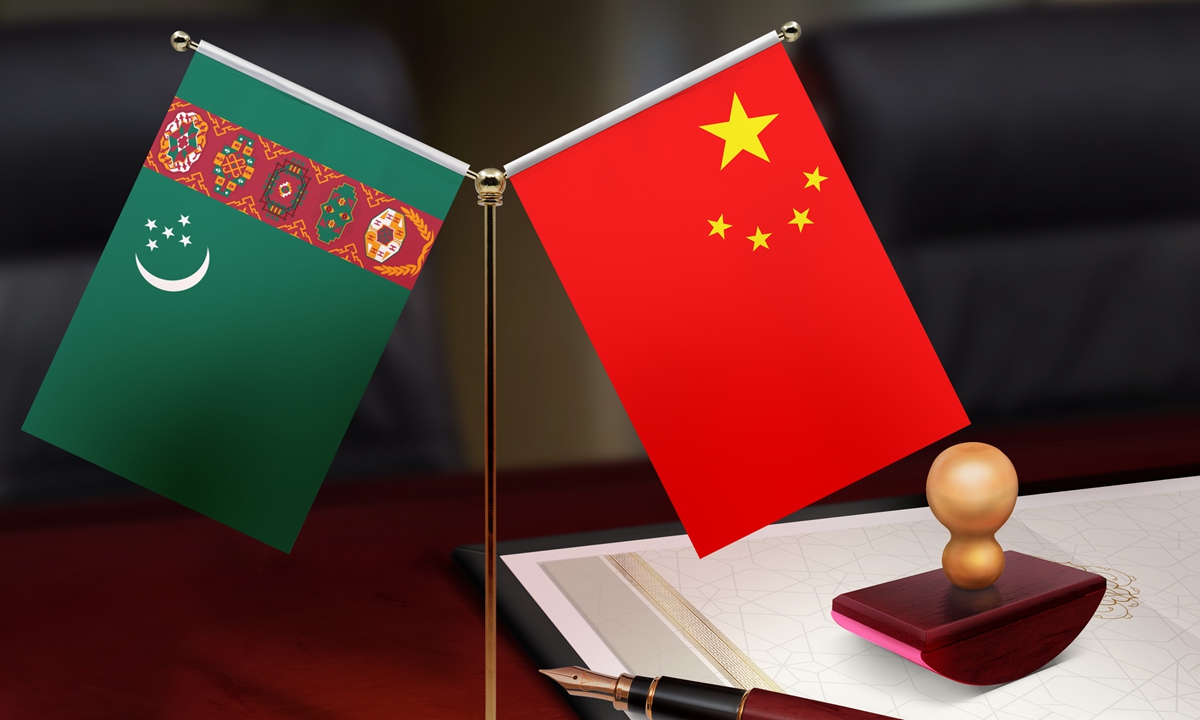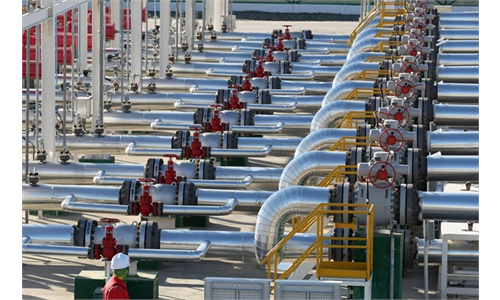Significant results including energy cooperation expected from Turkmen president's visit to China

China-Turkmenistan relations. Photo: VCG
President of Turkmenistan Serdar Berdimuhamedov is expected to pay a state visit to China from Thursday to Friday at the invitation of Chinese President Xi Jinping. Observers said that being one of the first foreign leaders to be received by China in 2023 reflects the unusual nature of China-Turkmenistan relations. Significant achievements including practical economic and energy cooperation are likely to be reached during the visit.
The announcement of the visit by the Turkmen president to China comes just a few months after the meeting with Chinese President Xi in the Uzbek city of Samarkand on the sidelines of the Shanghai Cooperation Organization Summit (SCO Summit) in September.
"A breakthrough and significant results are expected from the high-level meeting. In a year full of expectations, as COVID-19 restrictions have now been eased, China-Turkmenistan cooperation is believed to lean toward more cooperation efforts in practical economic fields, especially projects under the Belt and Road initiative," Yang Jin, an associate research fellow at the Institute of Russian, Eastern European and Central Asian Studies at the Chinese Academy of Social Sciences, told the Global Times.
President Berdimuhamedov is expected to discuss ways to expand energy cooperation with China, and both countries may also sign documents on cooperation under the Belt and Road initiative, Zhu Yongbiao, executive director of the Research Center for the Belt and Road at Lanzhou University, told the Global Times on Tuesday.
The Turkmen president's priority visit to China reflects its importance and special significance to Turkmenistan under the great changes taking place in the global energy landscape. With abundant natural gas resources, Turkmenistan has attracted the attention of Turkey and gas-starved European countries, while Russia also wants closer ties with the Central Asian country to further consolidate its traditional sphere of influence, according to Ding Xiaoxing, director of the Eurasia institute of the China Institutes of Contemporary International Relations.
Turkmenistan is one of the biggest suppliers of natural gas to China and has played an important role in China's efforts to ensure energy security, analysts said.
Turkmenistan is also a key country in the China-Central Asia Gas Pipeline project - China's first transnational gas pipeline that runs from the border of Turkmenistan and Uzbekistan, passes through Uzbekistan and Kazakhstan, and links up with China's Xinjiang region.
With a total length of 1,833 kilometers and a designed annual gas transmission capacity of 60 billion cubic meters, the pipeline was put into service in December 2009, and its highest daily transport volume has exceeded 160 million cubic meters, according to the Xinhua News Agency.
Turkmenistan was an important pivot along the Ancient Silk Road and served as a link between Central, West and South Asia. It has actively promoted domestic infrastructure construction, including airports and other major projects, and has high expectations for these to link up with BRI projects so as to further improve its own development and boost regional connectivity, Zhu told the Global Times.
Fields such as infrastructure construction, technology, new energy and digital economy are likely to yield more substantial results after the meeting between the two leaders, Yang noted.
The top leaders may also exchange views on some key issues and the regional security situation, including Afghanistan and the Russia-Ukraine conflict, said Zhu.
Other countries have also been paying more attention to Central Asia in recent years. Zhu noted that both the US and the EU have promoted their own strategies in the area to bring about more cooperation with regional countries. For example, in order to put the initiated C5+1 format into practical operation, then US Secretary of State John Kerry made a tour of Central Asia in early November 2015.
China has always attached great importance to its relations with Central Asian countries, and Berdimuhamedov's visit will further boost bilateral relations and further strengthen China's ties with Central Asia, injecting more certainty into regional development, said Zhu.
Based on the "China+Central Asia" Foreign Ministers' Meeting, the mechanism of "China+Central Asia" among state leaders has agreed to be established, which will inject a force of solidarity into the region as the political, security and economic patterns of the Eurasian region undergo drastic changes, observers noted.
At the meeting between President Xi and Berdimuhamedov on the sidelines of the SCO Summit, Xi noted the need to accelerate cooperation in non-resource fields. He mentioned the setting up of cultural centers as soon as possible to provide a new platform for people-to-people and cultural exchanges between the two nations.
The Chinese side is ready to set up a Luban workshop in Turkmenistan at an early date and continue to strengthen COVID-19 response cooperation with the country, Xi noted.



